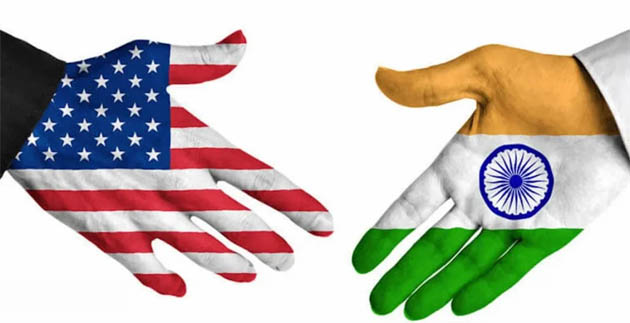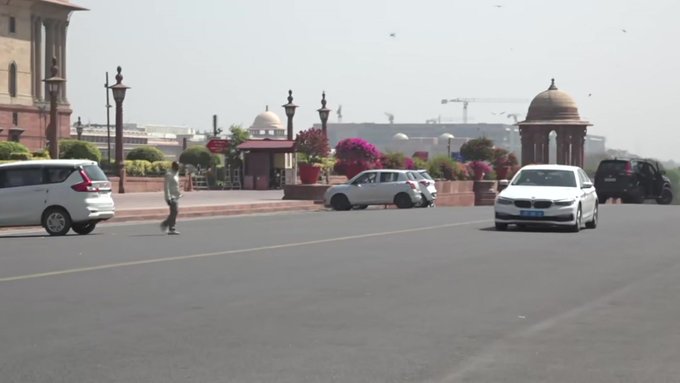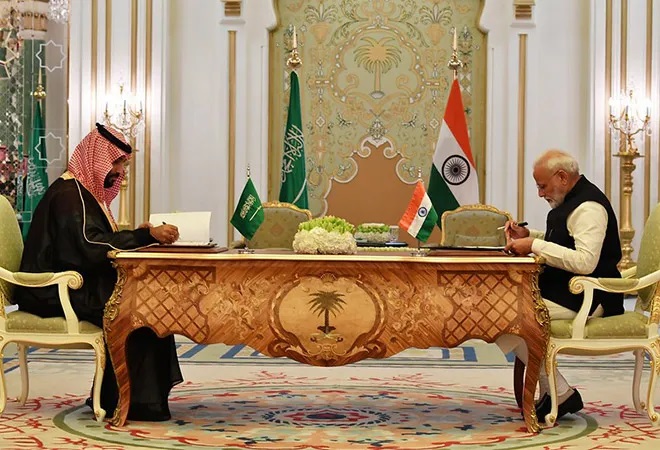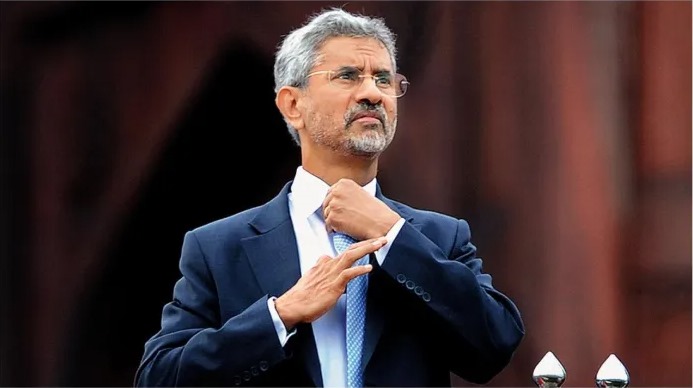Relations have soured since Joe Biden labelled India as ‘xenophobic’. Additionally, tensions have been fuelled by criticisms from Washington and a foiled assassination attempt. However, experts believe that Washington will make sure that nothing hinders its strategy to work with New Delhi in order to counter China’s challenge to both
 KRC TIMES Desk
KRC TIMES Desk

Girish Linganna
Relations have soured since Joe Biden labelled India as ‘xenophobic’. Additionally, tensions have been fuelled by criticisms from Washington and a foiled assassination attempt. However, experts believe that Washington will make sure that nothing hinders its strategy to work with New Delhi in order to counter China’s challenge to both.
Despite recent tensions over Washington’s views on New Delhi’s human rights record and an assassination attempt in the U.S., the challenge posed by China continues to bring India and the United States together.
Experts suggest that despite considerable tension, the importance Washington places on India as a balance to China’s increasing power in the Indo-Pacific will keep their relationship stable and ensure that any disagreements are kept separate, reports South China Morning Post (SCMP)
At a hotel fundraiser last week, speaking to an Asian-American audience, US President Joe Biden described India and a few other countries as “xenophobic.” He mentioned that these nations are facing economic challenges due to their anti-immigrant policies. Xenophobic means having a dislike or prejudice against people from other countries.
Biden’s comments coincided with the release of two important reports: the annual human rights report by the US State Department and a review conducted by the bipartisan United States Commission on International Religious Freedom. Both reports shed light on the mistreatment of minority groups, the implementation of unfair nationalist policies, and the silencing of dissent in India.
The US has accused India of attempting to assassinate Gurpatwant Singh Pannun, a Sikh separatist, on American soil. In response, India has announced that it is currently investigating these allegations.
Michael Kugelman, director of the Wilson Centre’s South Asia Institute, highlighted the importance of not perceiving all these various developments as indicative of a strained relationship, according to a report by SCMP.
He referred to the release of the human rights and religious freedom reports by Washington as a standard procedure, but acknowledged that the accusations of an extrajudicial killing would be the primary factor causing tension between Delhi and Washington in the short term.
According to a report, Kugelman, in an interview with This Week in Asia, stated that this issue would take centre stage in the bilateral relationship in the foreseeable future. He emphasized that the results of India’s investigation would carry considerable weight in determining the course of events.
In media reports, India’s spy agency has been identified as the entity behind the alleged plot to assassinate the Sikh separatist leader. However, India’s foreign ministry has firmly rejected these accusations, deeming them unjustified and lacking evidence.
Delhi expressed its disagreement with the US human rights and religious freedom reports, criticizing them as “deeply biased” and reflecting a “limited understanding of India.” Kugelman highlighted the importance of a strategic partnership between the US and India, which would help maintain stable relations in the immediate future. He noted that Washington’s reaction to the case had been fairly neutral.
A significant reason for this is the high importance that Washington places on its alliance with India at this time. It is determined to overcome any hindrances that could impede joint initiatives with India in countering China’s increasing influence in South Asia.
Kugelman mentioned that the identity of the US President was another significant factor influencing the robustness of US-India ties, particularly in reference to the upcoming presidential election. He suggested that Trump and Biden might have different responses to the situation. Kugelman was unsure if the Trump administration would exhibit the same level of caution as the current Biden administration.
According to SCMP reports, Walter Ladwig, a senior lecturer in international relations at King’s College London, highlighted that both countries recognized the shared challenge presented by China, which continues to act as a common ground between them.
In the field of international relations, it is commonly understood that actions speak louder than words. Ladwig, an expert in the field, pointed out that the United States is actively working to strengthen its relationship with India, regardless of any verbal exchanges or conversations taking place.
He highlighted the importance of recognizing the exceptional measures taken by the Biden administration to separate and manage the consequences of the Pannun assassination scheme in order to fully grasp the depth of the relationship between the United States and India.
Ladwig noted that while the United States was instrumental in supporting India during its successful G20 presidency, it concurrently had to address and investigate an inappropriate activity carried out by members of the Indian intelligence service targeting an American citizen on U.S. soil. Washington and Delhi are consistently working to strengthen their bond and maintain strong connections at the highest levels, as mentioned by Ladwig.
Ladwig pointed out that Biden was incorrect when he grouped India among countries facing economic challenges due to their resistance to immigration; in reality, India’s economy is experiencing rapid growth. He also noted that Biden labelled Japan, a longstanding U.S. ally, as “xenophobic,” another country he considered closed off to immigrants. This seems more like an instance of an elected official giving an impromptu response rather than a deliberate attempt to communicate with New Delhi, according to Ladwig.
The White House quickly clarified Biden’s comments, emphasizing that the U.S. values India’s friendship and cooperation, and explained that his remarks were actually about U.S. immigration policy. Indian Foreign Minister Subrahmanyam Jaishankar dismissed the U.S. president’s comments, stating that India has always been an open society.
When India’s relations with China are particularly strained and America’s rivalry with China is intensifying, the need for mutual support between India and the U.S. is more crucial than ever. Former Indian diplomat Anil Trigunayat speaking to media mentioned that India and the U.S. are comprehensive strategic partners who hold similar perspectives on global and regional matters.
Anil Trigunayat, also the author of “Evolving Security Dynamic in West Asia and India’s Challenges,” pointed out that India often has different evaluations and approaches to issues, in line with its policy of strategic autonomy to protect its national interests—something Washington may not favour.
India frequently criticizes the double standards of many countries, including those in the West. Despite this, the relationship between India and the U.S. is unlikely to deteriorate, as shown by the detailed clarifications following Biden’s ‘xenophobic’ comment.
Promotional | KRC Times






